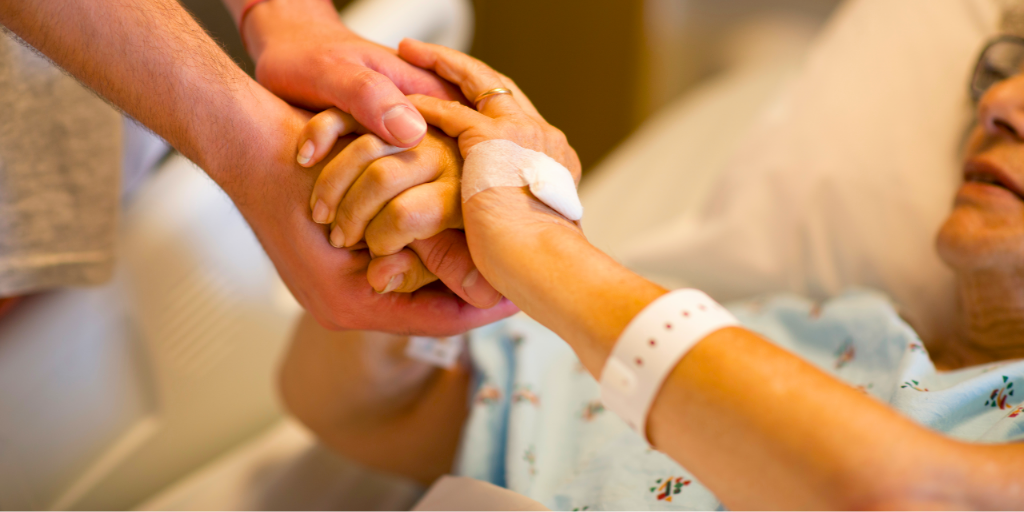
Roxane Salonen shares an experience of spending time with a friend in her dying days.
One of the many beautiful things Fred Rogers said in his lifetime was, “The greatest thing we can do is to let people know they are loved.”
That quote grabbed me during a scroll through social media, ringing profoundly true given an experience of helping prepare a friend for eternal life.
I’ve only recently begun referring to Ellen as a friend. For most of the years I knew her, she was a colleague; a fellow journalist who’d been deeply involved in the newsroom with which I eventually became associated. But we first crossed paths through our membership in a communications organization. We were fellow journalists, and she was part of this professional community that had supported us both for years.
But God knew all along it was to be something more. The day I discovered that I was not only a colleague of Ellen’s, but a neighbor, was the beginning of a hint of God’s plan. Walking with my husband, we happened by Ellen’s home, and she was outside. “Hey, we’re neighbors!” I said, waving.
When Ellen was experiencing a second run with cancer, it seemed convenient, the proximity of our homes. During that time, and with prompting from a mutual friend, I began reaching out to Ellen to see if she had any needs. After all, Jesus urges us to love our neighbor. Though most of our neighbors are not literally in the neighborhood, Ellen was, so it seemed a given I’d be called in to be a support.
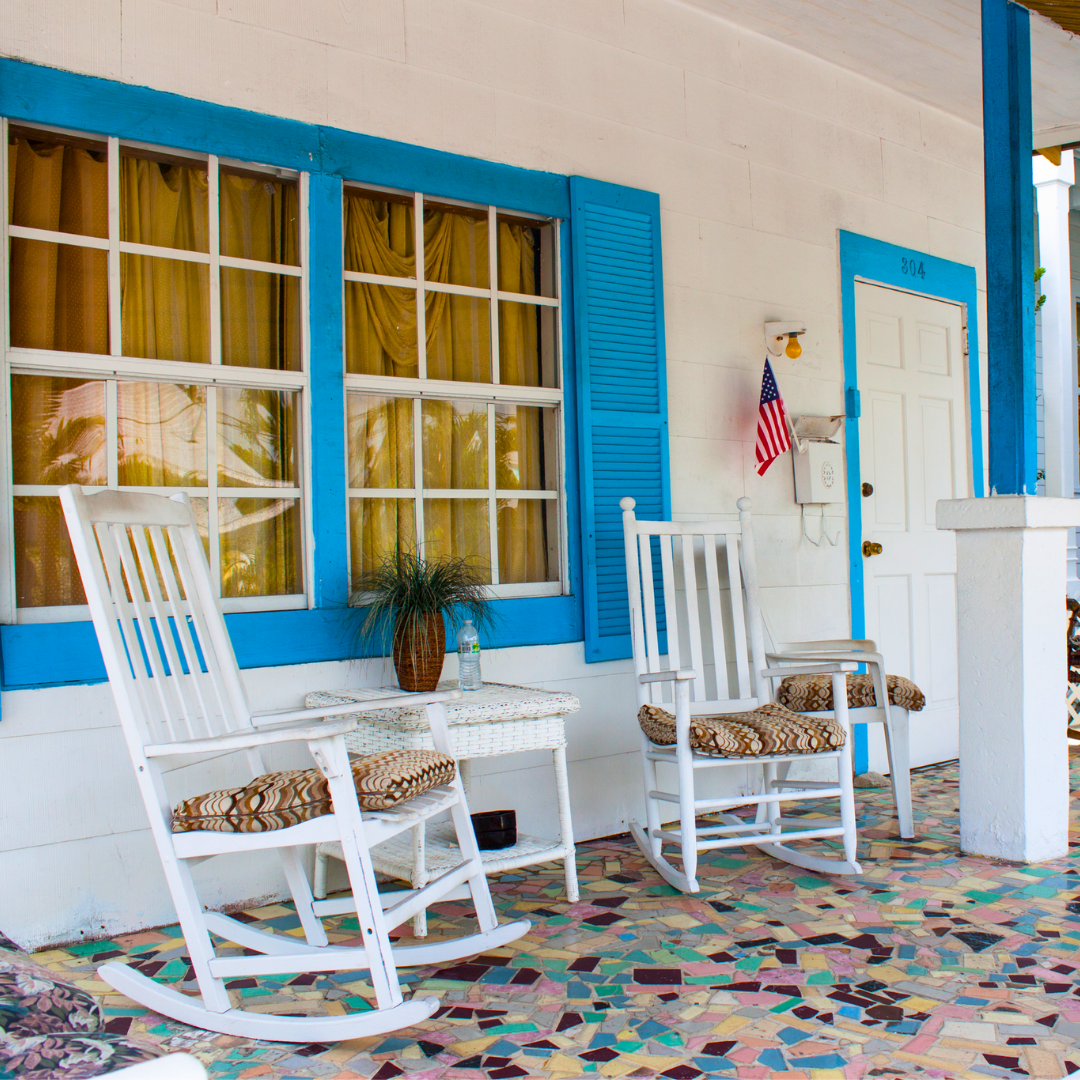
During one run to bring her a few groceries—she never asked for much—I sat with her a while, chatting, and learning a bit about her family, including her long history of loss. Ellen’s parents both died when she was quite young. By age 9, an only child, she became an orphan, and her life became unanchored. She never married and had no children. And now, she was fighting cancer and at a relatively young age, in her mid-60s.
Unsurprisingly, Ellen was fiercely independent. It had to be extra hard to let go; to accept the help of others; to be stripped of that independence; and finally, to come to the realization that you are dying. As her third bout with the disease began to progress, she was forced to accept help more and more. And somehow, I ended up getting pulled into that sacred circle of people doing our best to help ease her into eternity.
I am so grateful for the times I was able to pray with her in those last days, including on Valentine’s Day, most of all, to let her know she was loved, and that her true Love awaited her.
When the text came from a friend, a repeat of what Ellen had sent her—“There’s nothing more they can do for me. I’m dying …” —I gulped hard. What might that moment feel like? I wasn’t sure, but I knew that I wanted to see her, so I scurried to the hospital to offer whatever I might have. The weight of such a visit fell upon me as I grew closer to the facility. I knew that Ellen would soon be moving to hospice care in another wing. Could I say or do anything to help make that journey easier? What would I want someone to do for me?
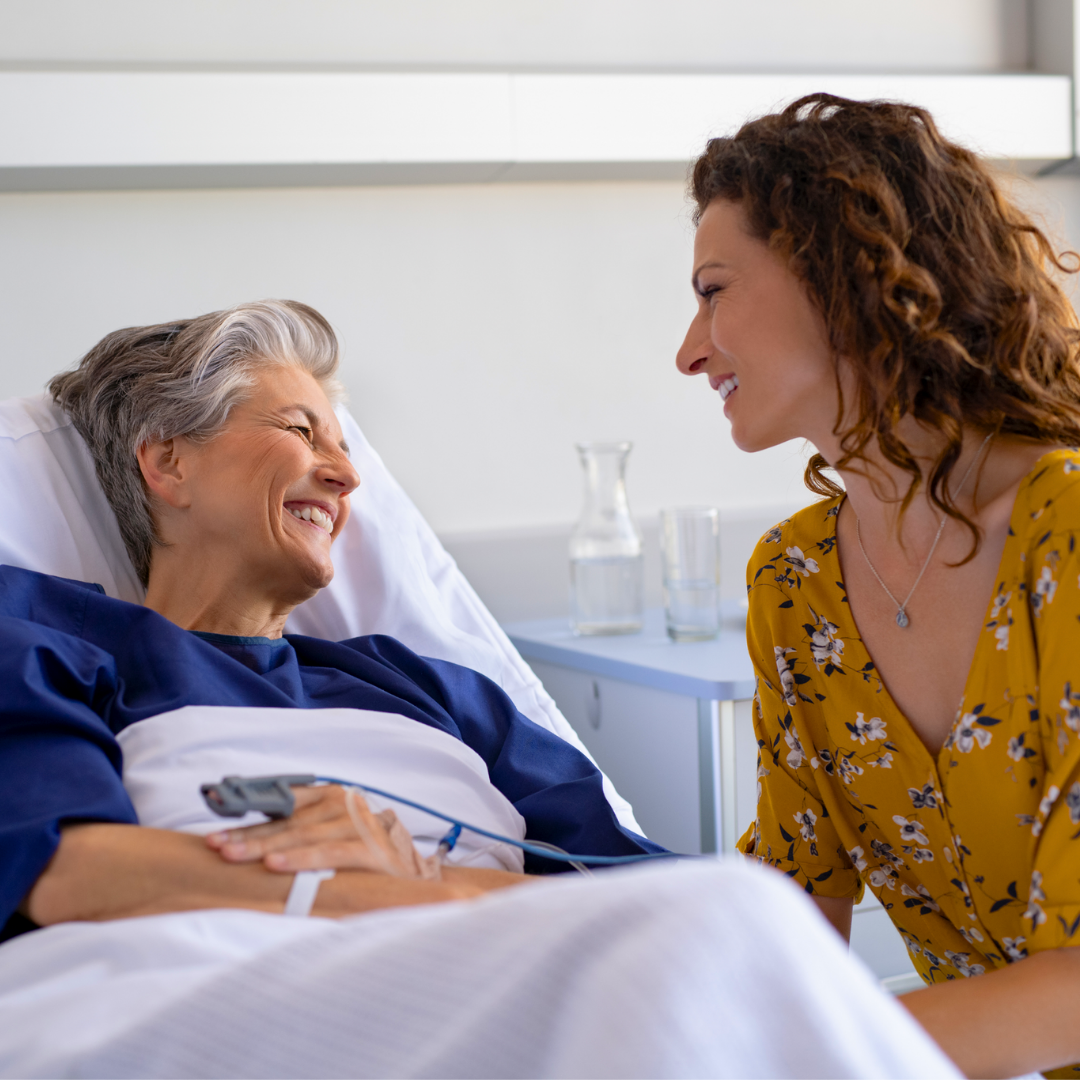
“You know, right?” Ellen asked. She wanted to get the important thing on the table right away.
“Yes, I did hear,” I said.
“I’m going to hospice sometime soon,” she said.
I had just taken off my coat when the nurses came in to transport her. “Well, it looks like we’re going to do this now,” one said. “Can you hold this bag with her things while we get her bed ready?” And just like that, I was helping bring my friend Ellen down the hallway in her bed, on the way to the place where she would die.
It's hard to describe what it felt like—surreal, for one, because I didn’t feel worthy. This was a moment that would typically involve close family, not a mere colleague, neighbor, and, now, friend. “Thank you,” I whispered to God. The privilege of such a moment is really beyond words, but I was grateful to have arrived just in time; that someone was present besides medical staff; that Ellen wasn’t being wheeled to her final room on this earth without someone from her world near to encourage and remind her, “You are loved.”
Ellen died on February 27, and I was honored again by being asked to song-lead at her funeral, which included a gathering of mostly former co-workers and friends. Ellen was Episcopalian, and one of the songs we sang was an old Lutheran hymn, “Blessed Assurance.”
The words still resound in my heart:
Perfect submission, perfect delight!
Visions of rapture now burst on my sight.
Angels descending bring from above.
Echoes of mercy, whispers of love.
In the end, it really is all about love, after all. How grateful I am to have been able to tell my friend Ellen, “You are dearly loved.” May I, too, hear these words—and believe them to be true—the last day of my life on earth.
Q4U: Who in your life needs to hear “You are loved” today?
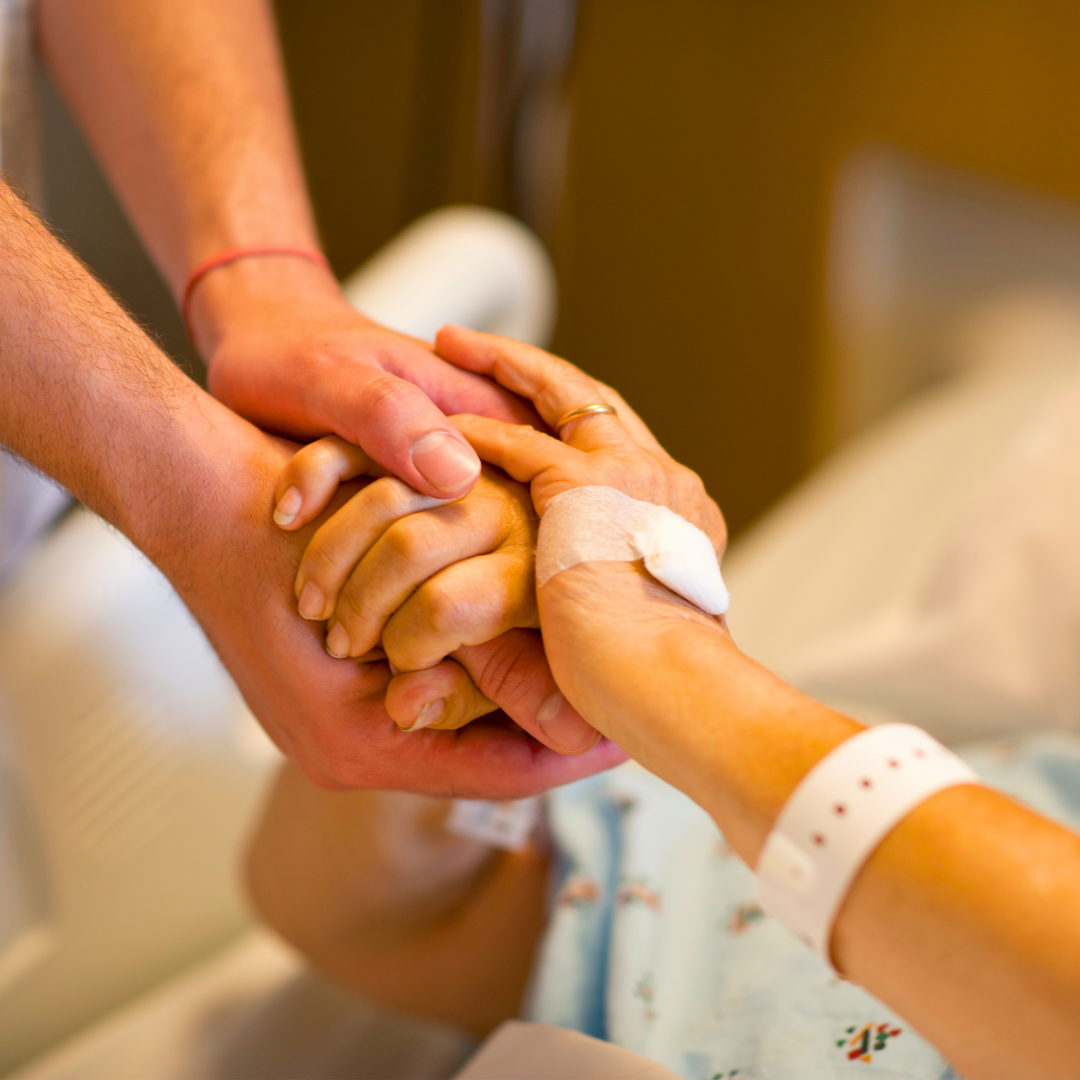
Copyright 2023 Roxane Salonen
Images:
The lyrics to the hymn "Blessed Assurance" are in the public domain.
About the Author
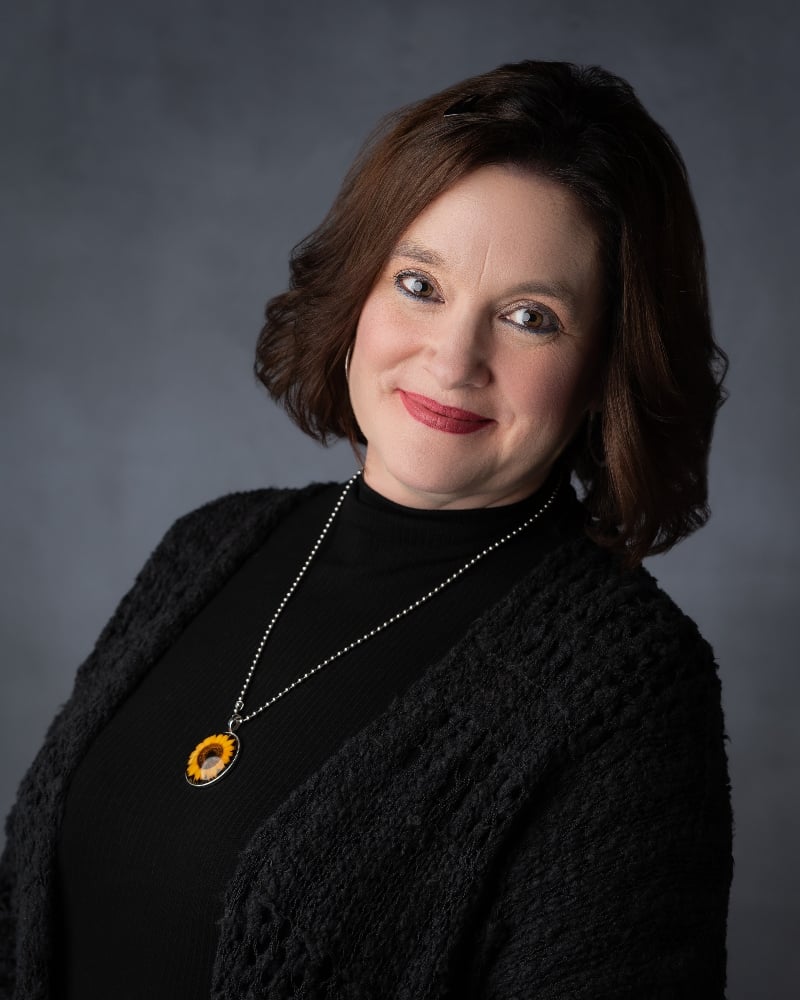
Roxane Salonen
Roxane B. Salonen, Fargo, North Dakota (“You betcha!”), is a wife and mother of a literal, mostly-grown handful, an award-winning children’s author and freelance writer, and a radio host, speaker, and podcaster (“ Matters of Soul Importance”). Roxane co-authored “ What Would Monica Do?” to bring hope to those bearing an all-too-common cross. Her diocesan column, “ Sidewalk Stories,” shares insights from her prolife sidewalk ministry. Visit RoxaneSalonen.com


.png?width=1806&height=731&name=CatholicMom_hcfm_logo1_pos_871c_2728c%20(002).png)
Comments